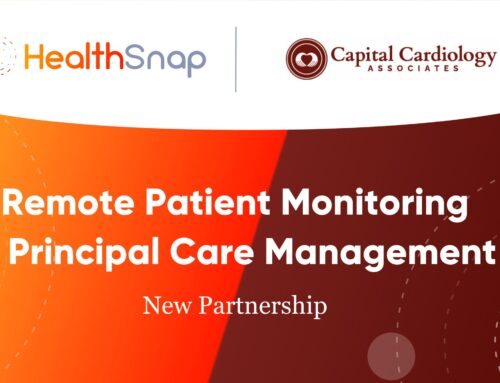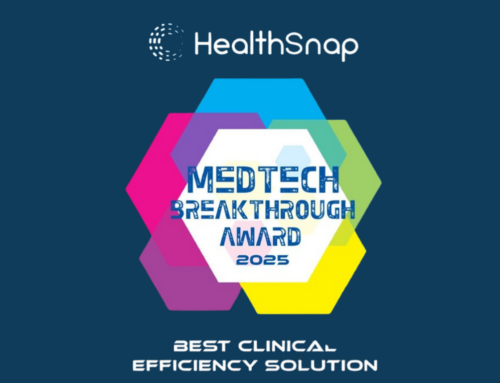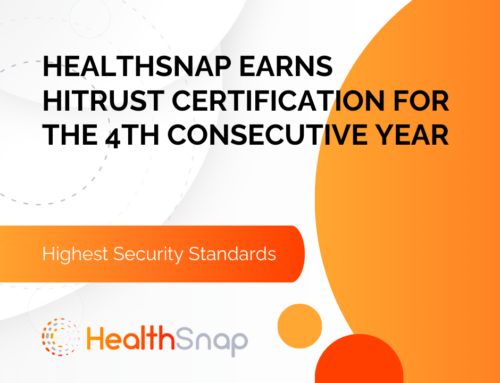Principal Care Management (PCM) represents a significant evolution in the management of chronic conditions, particularly within cardiology care. Focusing on patients with a single high-risk chronic condition, PCM offers specialized and intensive care management customized to individual patient needs. This approach is helpful in managing complex cardiovascular diseases such as hypertension, congestive heart failure (CHF), and atrial fibrillation.
Principal Care Management for Hypertension
Hypertension, commonly known as high blood pressure, is a prevalent condition that significantly increases the risk of cardiovascular diseases, such as stroke, heart attack, and heart failure. Effective management of hypertension is critical to preventing these severe health outcomes. Principal Care Management offers a structured and specialized approach to managing hypertension, focusing on personalized care plans, continuous monitoring, patient education, and coordinated care.
Individualized Care Plans
Personalization of Treatment: PCM for hypertension begins with the creation of individualized care plans customized to the specific needs of each patient. This personalized approach considers the patient’s medical history, lifestyle, and other underlying health conditions.
Components of the Care Plan:
-
Lifestyle Modifications: Encourages patients to adopt healthier habits, including dietary changes, regular physical activity, smoking cessation, and stress management. These modifications are critical in lowering blood pressure and reducing the risk of cardiovascular events.
-
Dietary Recommendations: The DASH (Dietary Approaches to Stop Hypertension) diet is often recommended, focusing on reducing sodium intake and increasing the consumption of fruits, vegetables, and whole grains.
-
Medication Management: Care plans include prescribed antihypertensive medications, tailored to the patient’s needs. Regular review and adjustments of these medications are necessary to ensure optimal blood pressure control.

Frequent Monitoring
Continuous Blood Pressure Monitoring: Principal Care Management may utilize Remote Patient Monitoring devices to track patients’ blood pressure. These devices provide near real-time data to healthcare providers, enabling them to monitor patient progress and intervene promptly if necessary.
Benefits of Continuous Monitoring:
-
Timely Interventions: Continuous monitoring allows for early detection of blood pressure fluctuations, including ambulatory blood pressure monitoring.
-
Preventing Complications: By keeping blood pressure under control, ongoing monitoring helps prevent complications such as stroke, heart attack, and kidney damage.
Patient Education and Engagement
Empowering Patients: Educating patients about hypertension and the importance of managing it effectively is a cornerstone of Principal Care Management. Engaged and informed patients are more likely to adhere to their treatment plans and make necessary lifestyle changes.
Educational Components:
-
Understanding Hypertension: Patients learn about the causes, risks, and long-term effects of high blood pressure as well as the need for timely high blood pressure diagnosis.
-
Medication Adherence: Education on the importance of taking medications as prescribed and understanding possible side effects.
-
Healthy Lifestyle Choices: Guidance on adopting a healthy diet, exercising regularly, and avoiding behaviors that can elevate blood pressure, such as excessive alcohol consumption and smoking.
Interactive Communication Tools: PCM and chronic care management (CCM) programs often provide patients with interactive tools, such as apps and online portals, where they can access educational resources, receive reminders for medication and appointments, and communicate with their healthcare team or a primary care provider.
Principal Care Management for Congestive Heart Failure
Congestive heart failure (CHF) is a chronic and progressive condition where the heart’s ability to pump blood effectively is compromised. Managing CHF requires a multifaceted approach, addressing both the medical and lifestyle aspects of the condition. Principal Care Management for CHF leverages personalized care plans, advanced monitoring technologies, patient education, and coordinated care to improve patient outcomes and quality of life.
Individualized Care Plans
Personalized Treatment Approach: PCM for CHF begins with the development of individualized care plans that consider the unique needs of each patient. These care plans are tailored to the patient’s specific stage of heart failure, comorbid conditions, lifestyle, and preferences.
Components of the Care Plan:
-
Medication Management: Ensures patients are prescribed the right combination of medications, such as ACE inhibitors, beta-blockers, diuretics, and others, to manage symptoms and prevent disease progression.
-
Lifestyle Modifications: Focuses on dietary changes, physical activity, weight management, and fluid restriction to reduce the workload on the heart.
-
Symptom Management: Detailed plans for managing symptoms like shortness of breath, fatigue, and swelling, including when to seek medical help.

Frequent Monitoring
Continuous Health Monitoring: Principal Care Management (PCM) may employs Remote Patient Monitoring tools to continuously track vital signs and other health indicators in near real-time. This ongoing monitoring is crucial for early detection of potential issues and timely interventions.
Key Monitoring Parameters:
-
Weight Monitoring: Daily weight measurements to detect fluid retention early, a common issue in CHF patients.
-
Blood Pressure and Heart Rate: Regular monitoring to manage cardiovascular health and medication effectiveness.
-
Oxygen Saturation: Ensuring adequate oxygen levels in the blood to prevent complications.
Coordinated Care
Multidisciplinary Team Approach: PCM for CHF involves a team of healthcare professionals working together to provide comprehensive care. This team typically includes cardiologists, primary care physicians, nurses, dietitians, and other specialists as needed.

Seamless Communication:
-
Integrated Care Platforms: Digital platforms ensure that all members of the care team have access to up-to-date patient information, facilitating seamless communication and coordinated care.
-
Collaborative Decision-Making: Regular case conferences and consultations among the care team members to discuss patient progress and adjust care plans as needed.
Reducing Hospital Readmissions:
-
Proactive Management: Early detection and management of potential issues through continuous monitoring and regular follow-ups help prevent hospital readmissions.
-
Comprehensive Discharge Planning: Thorough discharge planning and follow-up care to ensure patients transition smoothly from hospital to home care, reducing the risk of readmission.
Principal Care Management for Atrial Fibrillation
Atrial Fibrillation (AFib) is a common cardiac arrhythmia characterized by irregular and often rapid heartbeats. Effective management of AFib requires a combination of medical treatment, lifestyle changes, continuous monitoring, and coordinated care. Principal Care Management for AFib leverages these strategies to improve patient outcomes, enhance quality of life, and reduce the risk of complications such as stroke.
Individualized Care Plans
Personalized Treatment Approach: Principal Care Management for AFib begins with developing tailored care plans that address the unique needs of each patient. These plans take into account the type of AFib (paroxysmal, persistent, or permanent), the presence of comorbid conditions, patient lifestyle, and preferences.
Components of the Care Plan:
-
Anticoagulation Therapy: Prescribing blood thinners like warfarin or newer anticoagulants to reduce the risk of stroke.
-
Rate or Rhythm Control: Using medications such as beta-blockers, calcium channel blockers, or antiarrhythmics to manage heart rate or rhythm.
-
Catheter Ablation: Considering procedural interventions for patients who do not respond well to medications.
Lifestyle Modifications:
-
Diet and Exercise: Encouraging a heart-healthy diet, weight management, and regular physical activity to improve overall cardiovascular health.
-
Alcohol and Caffeine: Advising patients to limit or avoid alcohol and caffeine, which can trigger AFib episodes.
-
Stress Management: Providing resources and support for stress reduction techniques, such as mindfulness and relaxation exercises.
Continuous Monitoring
Continuous Health Monitoring: PCM may employ Remote Patient Monitoring (RPM) tools to continuously track vital signs and detect arrhythmias in near real-time. This ongoing monitoring is essential for early detection and timely intervention of AFib episodes.
Key Monitoring Parameters:
-
Heart Rate and Rhythm: Regular monitoring to detect irregular heartbeats and manage medication effectiveness.
-
Blood Pressure: Ensuring blood pressure is within target ranges to reduce the risk of complications.
-
Symptoms Logging: Patients can log symptoms such as palpitations, dizziness, or shortness of breath to aid in managing their condition.
Early Intervention and Crisis Management
Timely Interventions: Continuous monitoring allows for the early detection of warning signs, enabling timely interventions that can prevent the escalation of symptoms.
Crisis Management Protocols:
-
Action Plans for AFib Episodes: Detailed action plans outlining steps to take in case of AFib episodes, including when to contact healthcare providers and seek emergency care.
-
24/7 Access to Care: Providing patients with round-the-clock access to their healthcare team for advice and urgent care needs.
The Role of Remote Patient Monitoring in PCM for Cardiology
Enhancing Care Through Technology
RPM may be combined with PCM, and can play am important role by providing ongoing monitoring of patients’ vital signs and health metrics. This technology allows healthcare providers to detect early signs of deterioration, intervene promptly, and adjust treatment plans as needed. For cardiology patients, RPM devices can be utilized to monitor blood pressure, heart rate, weight, and other relevant metrics.
Benefits of RPM in PCM
-
Early Detection of Issues: Ongoing monitoring enables early detection of problems, allowing for timely interventions and preventing hospitalizations.
-
Improved Patient Engagement: RPM devices provide near real-time feedback to patients, encouraging them to take an active role in their health management.
-
Enhanced Care Coordination: Data from RPM devices can be shared with all healthcare providers involved in the patient’s care, ensuring seamless coordination and comprehensive care.

Financial and Operational Benefits of Principal Care Management
For Healthcare Providers
-
Increased Revenue Streams: Principal Care Management provides new revenue opportunities through billing for specialized care management services.
-
Efficiency and Resource Optimization: PCM enables efficient use of healthcare resources by reducing hospital readmissions and emergency department visits.
For Patients
-
Improved Health Outcomes: Personalized care plans, ongoing monitoring, and patient education lead to better management of chronic conditions and improved health outcomes.
-
Enhanced Quality of Life: Effective management of chronic conditions reduces symptoms and improves the overall quality of life for patients.
Transform Your Patient Care with HealthSnap’s PCM Services
HealthSnap revolutionizes Virtual Care Management and is designed to deliver an effective and scalable remote care experience. Partner with HealthSnap to enhance patient engagement, efficacy in chronic disease management, and improved patient outcomes, all supported by dedicated Care Management Services. Call us at 888-780-1872 or contact us online to schedule a consultation or a complimentary demo with one of our Specialists.






